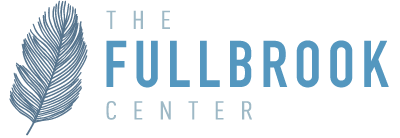The journey towards recovery from addiction is challenging, and the hurdle of funding addiction treatment without insurance often adds to this complexity. This article addresses the critical need for accessible addiction treatment options for individuals lacking health insurance. It is a daunting reality that many facing addiction issues are also grappling with financial constraints. However, it is crucial to recognize that the lack of insurance should not be a barrier to seeking and receiving the help needed.
Government Assistance and State-Funded Programs
For many without insurance, government assistance programs can be a lifeline. Understanding and accessing these resources can be a crucial first step in the journey towards recovery.
Medicaid and Medicare: These are federal and state-funded health insurance programs designed for low-income individuals, the elderly, and people with disabilities. While eligibility criteria can vary by state, these programs often cover addiction treatment services including detoxification, outpatient therapy, and in some cases, inpatient rehab. It’s important to check the specific coverage details and eligibility criteria in your state. Contacting a Medicaid office or visiting the official Medicare or Medicaid websites can provide more clarity and guidance on how to apply.
State-Funded Treatment Programs: Numerous states offer publicly funded addiction treatment services for residents who have no insurance or are underinsured. These programs can range from outpatient counseling to more intensive residential care. The availability and scope of these services can vary significantly from state to state. Accessing these resources typically requires some research; your state’s health or behavioral health department is a good starting point. They can provide information on eligibility requirements and how to apply for these state-funded services.
Other Government Programs: Beyond Medicaid and state-funded options, there are other government-based financial aids available. For instance, the Substance Abuse and Mental Health Services Administration (SAMHSA) offers grants that individuals can apply for, though these are often routed through treatment facilities rather than directly to individuals. Visiting the SAMHSA website can offer insights into available grants and how to access them.
Private Funding Options
When government aid isn’t an option, or additional funds are needed, private funding options can come into play. Exploring these avenues requires careful consideration and planning.
Personal Savings and Asset Liquidation: Using personal savings or liquidating assets can be a viable option for some. While it might be difficult to use hard-earned savings or sell personal items, investing in one’s health and recovery can be profoundly life-changing. It is essential, however, to approach this option with a solid plan to avoid financial instability post-treatment.
Loans and Financial Agreements: Personal loans, whether through financial institutions or specialized healthcare lending services, can provide the necessary funds for treatment. It’s crucial to understand the terms, interest rates, and repayment schedules associated with these loans. Additionally, some treatment facilities offer financing plans, allowing the cost to be spread over time, making it more manageable.
Seeking Help from Family and Friends: Turning to family and friends for financial support can be challenging but also rewarding. When approaching loved ones, it’s important to communicate openly about the need for treatment and the positive impact it will have. Setting up a clear repayment plan or agreement can also help in easing any potential financial tensions in these relationships.
Scholarships and Grants for Addiction Treatment
Navigating the landscape of scholarships and grants can be a beacon of hope for those needing financial assistance for addiction treatment.
Identifying and Applying for Treatment Scholarships: Numerous organizations and treatment centers offer scholarships specifically for individuals seeking help for addiction. These scholarships can cover partial or full treatment costs. To find these opportunities, start by researching treatment centers and addiction recovery organizations. Many have information on their websites about available scholarships and the application process. Additionally, online databases and recovery communities can be valuable resources for finding such opportunities.
Non-Profit Organizations and Foundations Offering Financial Aid: There are various non-profit organizations and foundations dedicated to helping individuals with addiction. These entities often provide grants or funds to assist with treatment costs. Examples include the SAMHSA grants mentioned earlier, as well as foundations like the Sobriety Optimization League (SOL) Foundation and the 10,000 Beds organization. Each organization has its own application process and criteria, so it’s essential to reach out to them directly or visit their websites for more detailed information.
Guidelines for Securing Grants for Addiction Treatment: When seeking grants, it’s crucial to prepare a compelling application. This typically involves providing detailed information about your situation, addiction history, and treatment needs. It may also require letters of recommendation or proof of financial need. Be honest, clear, and concise in your application, and ensure you meet all the specified requirements and deadlines.
Employer Assistance Programs
For those employed, exploring Employer Assistance Programs (EAPs) can be a practical option for funding addiction treatment.
Exploring Employee Assistance Programs (EAPs): Many employers offer EAPs that provide short-term counseling and referral services for employees. Some EAPs may also cover part of the cost of addiction treatment or offer resources for affordable treatment options. It’s important to inquire about the specifics of your employer’s EAP, as the scope of services can vary widely.
Approaching Employers for Help with Treatment Costs: When considering this option, research your company’s policies and speak to your HR department confidentially. Understand the extent of the support offered and any implications it might have on your employment. Most EAP services are confidential, but it’s crucial to clarify this aspect.
Understanding Confidentiality and Job Security: Concerns about confidentiality and job security are common when utilizing EAPs for addiction treatment. However, EAPs are generally designed to ensure employee privacy. Familiarize yourself with the confidentiality agreements and your rights under laws such as the Americans with Disabilities Act (ADA) and the Family and Medical Leave Act (FMLA).
Practical Tips for Managing Treatment Costs
Efficiently managing the costs associated with addiction treatment can make the process less daunting.
Budgeting Strategies Specific to Addiction Treatment: Creating a detailed budget is key. Account for the total cost of treatment, including any travel or additional expenses. Look for areas in your current expenses where you can cut back to allocate funds for treatment.
Finding Cost-Effective Treatment Options and Alternatives: Not all treatment options are equally expensive. Outpatient programs, group therapy, and sliding-scale fee services offered by some therapists or treatment centers can be more affordable. Additionally, some sober living homes offer a supportive environment at a lower cost than inpatient facilities.
Negotiating Payment Plans with Treatment Facilities: Don’t hesitate to discuss payment options with treatment centers. Many are willing to work with individuals to create a manageable payment plan. Some may offer a sliding scale fee based on income, or the possibility to pay in installments.
The Importance of Investing in Treatment
The decision to invest in addiction treatment is not just a financial one; it’s an investment in a healthier, more stable future.
The Long-Term Benefits of Receiving Quality Addiction Treatment: Overcoming addiction can lead to significant improvements in overall health, relationships, and quality of life. It also reduces the long-term costs associated with addiction, such as healthcare expenses, legal issues, and lost productivity. The benefits of successful treatment extend beyond the individual to their family, workplace, and community.
Addressing the Stigma Surrounding the Need for Financial Aid in Treatment: There’s often a stigma attached to seeking financial help for addiction treatment. It’s vital to understand that addiction is a medical condition, and seeking treatment is a brave and necessary step. Accepting financial help should be viewed no differently than seeking help for any other health issue.
The Positive Impact of Recovery on Personal and Professional Life: Recovery can lead to renewed relationships, better job performance, and new opportunities. It allows individuals to regain control over their lives and pursue goals that were once hindered by addiction. This transformation not only benefits the individual but also creates positive ripple effects in their wider social and professional circles.
Additional Resources
To further aid in your journey, here is a list of additional resources:
- Substance Abuse and Mental Health Services Administration (SAMHSA): Offers a wealth of information on treatment options, including a national helpline for immediate assistance.
- A Forever Recovery: Provides online resources to help those without insurance find options to fund treatment.
- National Institute on Drug Abuse (NIDA): Provides extensive research and educational materials on various aspects of addiction and recovery.
- Local Health Departments: Can guide you to state and local resources for addiction treatment.
- Support Groups and Online Forums: Communities like Alcoholics Anonymous (AA) or Narcotics Anonymous (NA) offer support and guidance from those who have walked this path before.
- Therapist and Counselor Directories: Websites like Psychology Today can help locate therapists who specialize in addiction treatment, some of whom may offer sliding scale fees.
While the journey to addiction recovery without insurance presents its unique challenges, it’s important to remember that numerous avenues and resources are available to facilitate this crucial step. With the right information and support, the path to recovery is accessible, offering a brighter, healthier future.
Pictured here is Lilly, the “main doggo” here at The Fullbrook Center. She didn’t actually write this page, but we let her take the credit. Learn more about our talented team, our treatment facility, our approach, and who our clients are. And if you’re interested in healing from substance abuse and trauma, we’d love to hear from you; please drop us a line.


